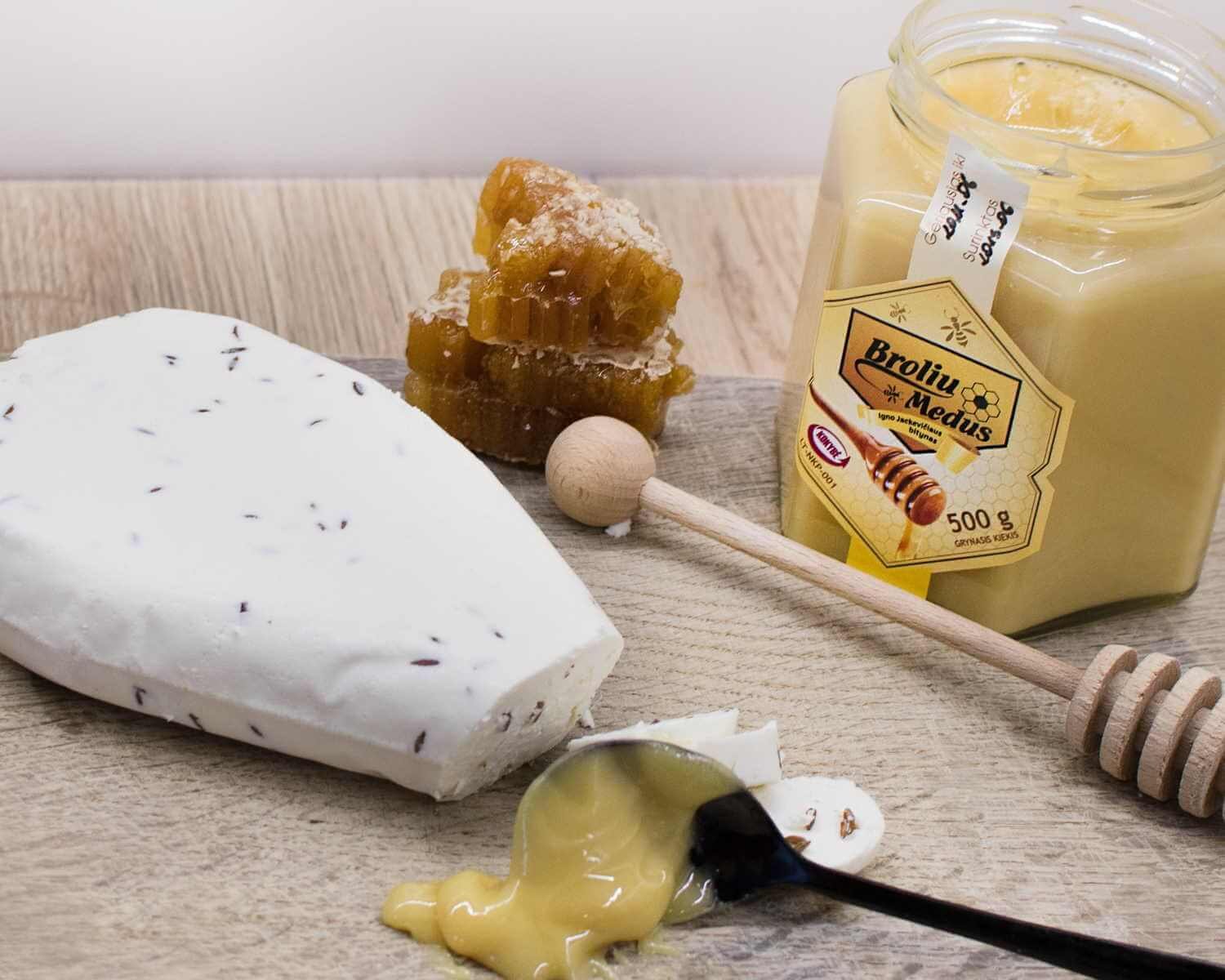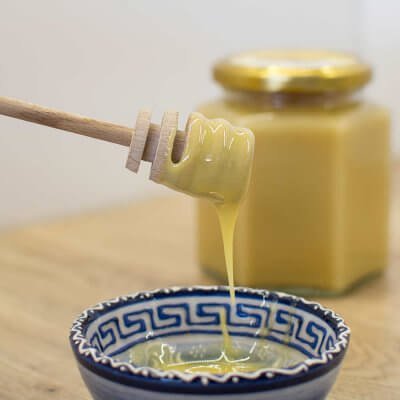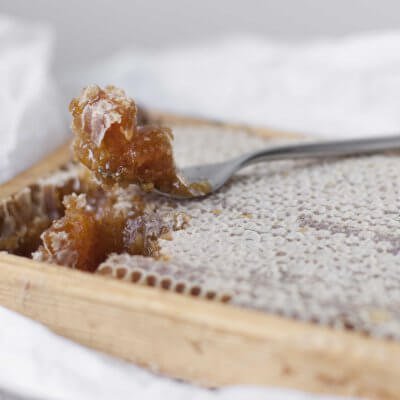Blog
Composition of honey. Honey calories and what's behind them.

Honey - actually food. And while all we taste when we taste honey is an indescribable sweetness with a slight vegetal aftertaste, honey contains a wide variety of substances. Well, if you're a calorie-counter, it's definitely worth reading on, as we'll discuss the nutritional value of honey and how it can help you lose weight.
Calories
Honey is almost pure energy. 100 g of honey contains about 80% of carbohydrates and about 350 kcal. Slightly less than sugar. The remaining 20 % in honey is water, so the main calories come from the simple carbohydrates in honey, which are much better and faster absorbed than sugar. In honey, almost half the sweetness comes from fructose and another third from glucose. Maltose and sucrose can also be found in honey. So almost all of honey's calories come from carbohydrates, but honey's nutritional value doesn't stop there.
Protein
The protein content of honey is relatively low - only about 0.2 g of protein per 100 g of honey. However, the proteins that are present in honey act more as vitamins than as building proteins (needed to build muscle mass). A large part of the protein in honey consists of enzymes and amino acids. Honey enzymes are responsible for fighting free radicals and stopping cell damage mechanisms. Proline, one of the main amino acids in honey, serves as an excellent antioxidant, helping cell renewal, tissue repair and collagen synthesis. In addition to proline, 17 other amino acids are found in honey that are important for humans.
Salt, vitamins and minerals
Strange as it may sound, honey contains salt! It is true that the amount of salt in honey is very small, measured in terms of sodium - just 4 mg. Honey also contains a few milligrams of calcium, fluorine, magnesium, phosphorus, less than a milligram of copper, iron, manganese, selenium, zinc and even 52 mg of potassium. In addition to minerals, Honey rich in vitamins. It contains around 2 mg of choline, half a milligram of vitamin C, a little niacin, riboflavin, pantothenic acid, vitamin B6 and others.
How to lose weight? Can honey help?
Yes and no. Although honey is calorie-dense, the calories in honey are different. Honey's nutritional value, when compared to any sweetener or sugar, is significantly higher because of the components already listed above. Therefore, honey does not provide "bare" calories, but a complete package of essential nutrients which, according to a growing number of scientific sources, can help with weight loss when consumed in moderation.
A teaspoon of honey is more calorific than a teaspoon of sugar, but a teaspoon of honey is much sweeter, so we consume less of it. Less honey means fewer calories. In addition, honey, like other bee Products contains ingredients that speed up metabolism. This does not mean that it will spin at cosmic speed, of course, but the pattern of wasting energy rather than storing it will gradually take hold.
If you count calories and eat healthier, honey can be a great alternative to sugar. Just remember that honey, like sugar, should be consumed in moderation.
Honey withIt is both very simple and very difficult at the same time. No matter how many years scientists try to synthesize honey-like products with the same health-promoting properties, we are still successfully using natural honey, while its "imitators" sit on lab shelves. So where is the secret of honey's composition?
Sugar but not sugar
Honey - almost pure carbohydrate. About 80% of it is carbohydrate, and the other 20% is water, enzymes, vitamins, minerals and other miracle ingredients. Honey so sweet because most of its sugars are fructose, which we start to absorb in the mouth (~40 %), followed by a third glucose and some maltose and other carbohydrates. The main difference in sweetness between honey and sugar is that honey has a lower glycaemic index, so blood glucose levels will not go on a merry-go-round like they do with sugar. By the way, the roller coaster is not good for our brain, heart or pancreas. So if you can't give up sugar, replace it with honey.
Composition of honey It becomes special when the nectar is processed in bee brood. There, it is mixed with the bees' saliva and the beneficial substances and enzymes they produce. Apparently, this is what still makes honey production technology irreplaceable, preventing it from being replaced by a laboratory-made substitute. So what do bees add to that honey?
Vitamins. Honey is rich in B vitamins, as well as one of the main antioxidants, vitamin C.
Acids. Although honey is sweet, it contains a lot of acidity. It has a lot of sweetness, mainly apples and lemons.
Minerals. This is probably the largest group of beneficial substances in honey. It is rich in calcium, sodium, potassium, chlorine, iron, magnesium, copper, phosphorus and other trace elements.
Protein. Most of the protein in honey comes in the form of amino acids. Almost all essential and interchangeable amino acids can be found in honey.
Honey has a unique composition. There is no other jar of honey in the world like it. While the main component of honey - carbohydrates - is almost unchanged, the rest of the honey's composition depends on the timing of the honey harvest and the nectar of the flowering plants. Beekeepers say that for a honey rich in minerals, antioxidants and protein, you should choose a honey that is as dark as possible, for example buckwheat honey. And the world's most valuable honey is Manuka (New Zealand tea tree). Honey.
Sources used in this post:






